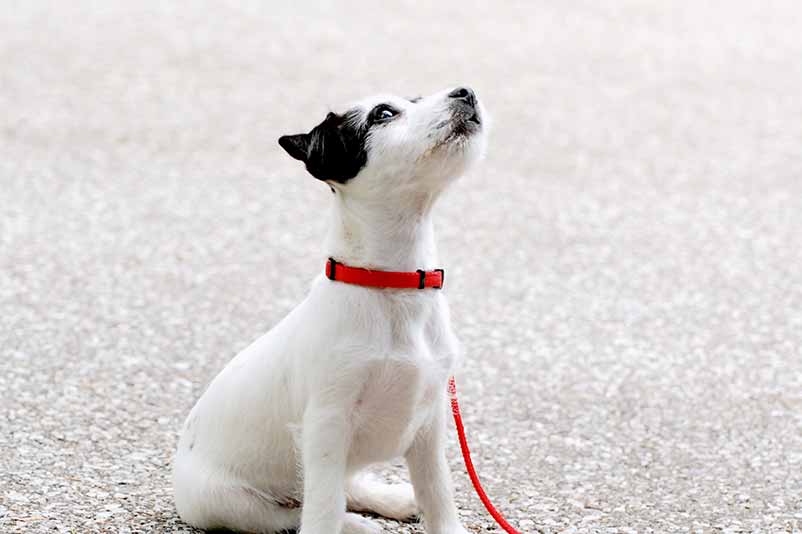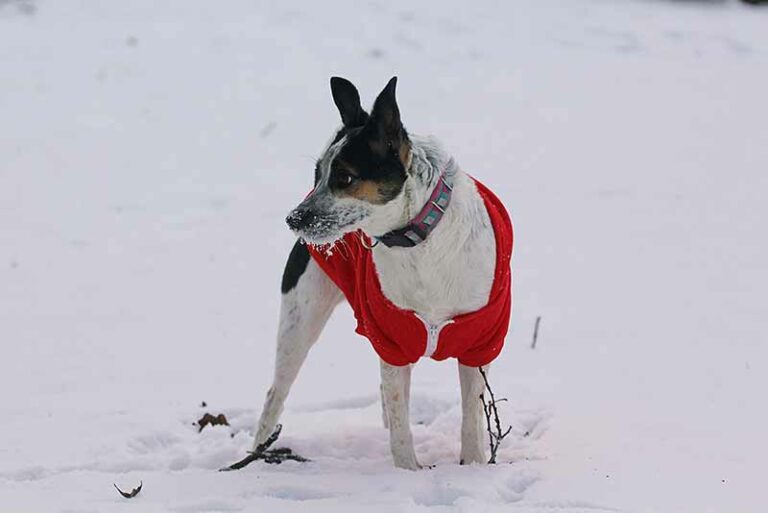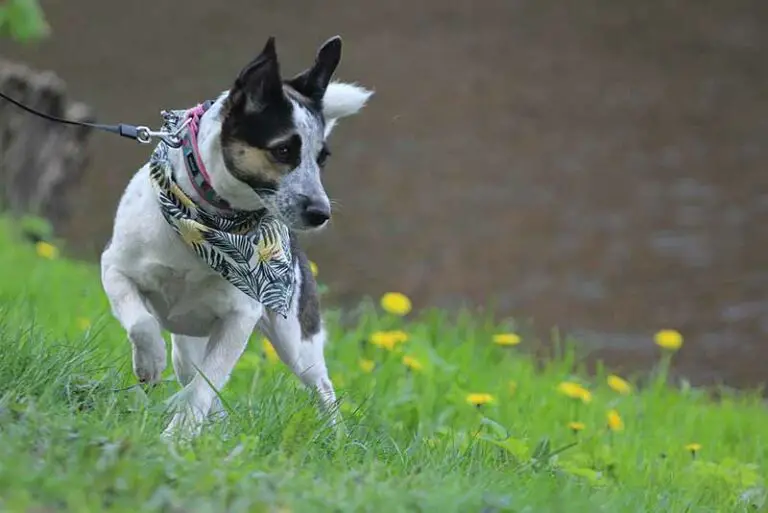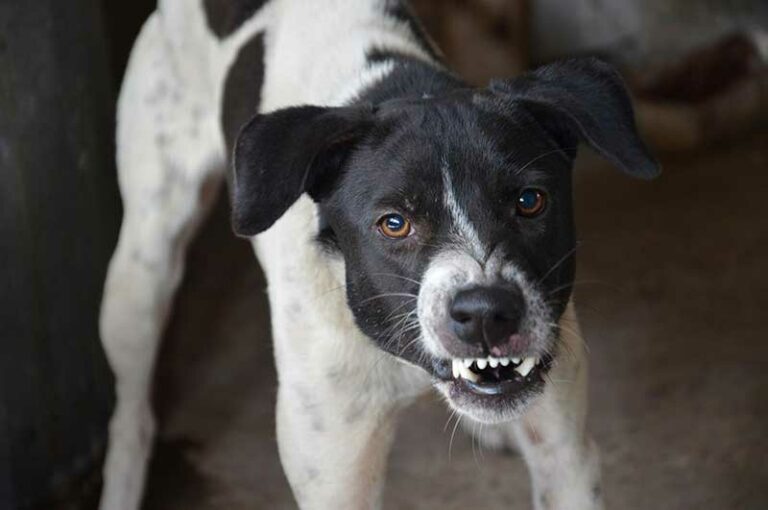Are Rat Terriers Hypoallergenic? Do Ratties Cause Allergies?
First of all, what’s hypoallergenic? It means that your doggo produces a minimal amount or does not produce allergens at all. Therefore he almost doesn’t trigger any allergic reactions in anyone around him.
So, are Rat Terriers hypoallergenic? No. Rat Terriers produce a sizeable amount of allergens in the forms of urine, saliva, and dead skin cells that could cause allergies in you. So, if you have any form of pet allergies, we’re sorry to inform you that none of the dog breeds is, especially Rat Terrier hypoallergenic.
Are Rat Terriers Hypoallergenic?
Several proteins and other microscopic particles included in the urine and saliva in dogs are potential triggers of allergies. Dander or dead skin particles falling out of the body can cause allergies, too.
Every dog, despite its breed or age, produces these allergens. So we inform you against owning or even being in the proximity of dogs if you even have the slightest form of pet allergy.
It’s not different from Rat Terriers as well. Your Rattie, too, produces every bit of dander and proteins in their by-products.
We understand why many people love to be a parent of a Rat Terrier. They’re lively, affectionate, and loyal to the max. Moreover, his cute size is the best for people living in apartments.
But the best thing is he’s superbly intelligent and very easy to train. So is he not the perfect pet for anyone looking to own a dog of their own?
Unfortunately, the only downside is that Rat Terriers are not hypoallergenic. Don’t be upset thinking about how you could ever own a doggo, especially a Rattie, if you’re allergic to them.
We have solutions. But, before that, let’s get to the bottom of the search: is a Rat Terrier hypoallergenic or not?
Do Rat Terriers Cause Allergies?
Many people think that because Ratties have dense and short hair that has minimal shedding, Rat Terriers are hypoallergenic, too.
Yet, unfortunately, Rat Terriers are documented under the dogs that are not hypoallergenic. But, what are these so-called allergies triggered by Rat Terriers?
The most common symptom of a pet allergy is a running nose, accompanied by sneezes. Also, your eyes might itch and burn, and sometimes even your face might get puffy and redden as if you’re blushing out of control.
Other than these, itchy skin that leads to rashes, coughing, and ultimately turning into wheezing is severe levels of pet allergies.
These situations are caused mainly by fur and dander and the particles (proteins) in your Rattie’s urine and saliva. When those particles enter your body, your immune system reacts to that alien substance.
But sometimes antibodies created by the system think the allergens are harmful, even if they are not.
Symptoms such as coughing, blocked or runny nose are just some methods of how your immune system is trying to stop allergies from entering your body.
So if you have pet allergies, try to remove yourself from the location soon as possible to recover.
Tips for cohabiting with allergies and Rat Terriers
As I explained before, every dog produces allergens. If you think Rat Terrier hypoallergenic is true, you’re sorely mistaken. But now it’s time to give you the good news.
We know how much you love to become a Rat Terrier parent. But, still, you’re pet allergic, aren’t you? So can you cohabit with your rattle? Yes, of course. You can.
But how? Let us tell you how.
- Groom Your Rattie Regularly
A regular grooming schedule will make you feel like your Rat Terrier is hypoallergenic, too, because this will keep all the doggo hair and skin particles at bay.
It would be best to bathe your pet at least once a week. Moreover, don’t forget to brush your Rat Terrier’s fur regularly.
It will remove all the loose hair from the dogs while keeping the air inside your house clean of airborne fur and skin follicles.
Try to do it at least 2 or 3 times per week, and using microfiber cloth, wipe down your pet after walking outdoors. It will also help you remove pollen off his fur.
Further, I should mention that, unlike bathing, brushing should not be done by the allergic person.
- Keep Him Off The Bed
Do not let your dog get onto your bed if you’re pet allergic. Any allergen stuck on Rattie’s fur like dead skin, pollen, and even dust and hair itself will get transferred to your bedding and make you irritated during the night.
As a precaution, keep your doggo away from the bed and close the door if you can. So, You’ll have a safe area to retreat to if you ever get any allergic reaction.
- Try Air Purifiers
Opt for an air purifier; then, your atmosphere will be mostly clear of allergens. And you’ll have some fresh air you can inhale without worrying about your face becoming a tomato.
Also, try one in your bedroom because usually, we spend most of the day in our room.
- Always Take Him Out To Empty His Bowels
The best way to steer clear of the allergens in his bi-products is to take him out to do his business.
If you can train him to hold it in until a specific time, your pet will refrain from emptying his bowels in your close circle. But don’t forget to remove these properly from the environment.
Those four are the significant steps you should take if you want to cohabit with allergies and Rat Terriers.
But other than those, consult with a doctor, preferably an allergist, and get medicines for your situation. There are tablets, nasal drops/sprays, and vaccines that you could use to minimize allergies.
Also, if you can, try to rinse your sinus daily, preferably with saline water, to get rid of any allergens.
Furthermore, choosing a hardwood floor will also help keep allergies at bay. And please refrain from petting or even getting closer to other dogs.
If you follow these steps, you’ll feel like your Rat Terrier is hypoallergenic, too.
Thank you for reading this post. Stay tuned with Jack Russell Owner for more interesting posts.








